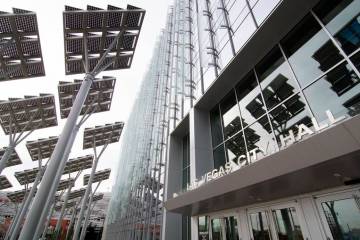Whenever the Legislature meets, it seems the silly season of political rhetoric grows shriller.
Conservative pundits are being disingenuous when they compare Governor Sandoval’s proposal to raise the business license fee to a stealth replay of the defeated Question 3- Margins Tax.
As readers of this column know, we’re not buying the revenue side of what Sandoval is selling. But his plan is much fairer than the Margin Tax and the governor is eager to show facts and figures to make that point.
His favorite seems to be an example of a construction company with $2 million in revenue. Under the governor’s plan, the company would pay $1,740, a far cry from the $28,000 under the Margins Tax. While that’s true, how fair is it to bill the owner anything if the company isn’t turning a profit?
The problems with Sandoval’s proposal are two-fold:
1) He’s relying on a gross receipts levy that is inherently unfair because it taxes the wrong thing. Companies with big sales and low margins – think grocery stores, insurers, even car dealers – and companies operating in the red are going to get socked unfairly.
2) He’s simply asking too much too soon after the Great Recession. A record $1 billion-plus tax bite is going to slow the state’s economy at just the moment it is starting to roll again.
At the heart of the conversation is the lack of resolve to do the kind of fundamental reform Sandoval and others have been touting. The governor’s proposal suffers from trying to build on a flawed foundation. Yes, the business community swallowed a gross receipts levy as an emergency step during the Great Recession. But that doesn’t make it good policy.
If you want a business tax – and the business community is eagerly signaling it is willing to bite into something major to help schools – then shift the focus to a sales tax on services, or a business property tax or a Euro-style value added tax or (gasp) even a business income tax.
This whole conversation is as much about public perception as it is about revenue. Nevada has an absolute competitive advantage when it says ‘no income tax.’ A recent study by the national Tax Foundation ranked Nevada #3 among ‘small-business-friendly states.’ (We’re behind only Wyoming and South Dakota.)
That’s good and something to be celebrated. But we can’t grow and diversify our economy on small business alone. That’s one of the reasons attracting the Tesla plant is important. It says yes we can compete and win.
Certainly there are other major employers who are being scared away by an education system that ranks near the bottom nationally. That’s just one of the state’s infrastructure challenges, a topic for another day.
So the test in the next 120 days becomes: How do we improve education without screwing up the lure of low taxes?
And, maybe in that construct, any business levy can’t look like an income tax. I’ll argue that a gross receipts tax sounds worse than an income tax, again because it taxes the wrong thing.
Businesses understand the need to pay a fair share; they understand simple fair taxes on property – land, buildings, equipment. Businesses pay those in other states and an upward bump likely won’t erode Nevada’s appeal.
If we lack the backbone to attack real reform – the kind that recognizes we all need to pay a fair share and we’ll put all the options on the table to accomplish that – we should probably stick to levies that don’t make us look like Drunk Uncle or ask businesses to make new and unusual comparisons. In short, we need to retain our structural tax advantage while raising rates to provide the resources the education system needs to compete.
Now is that too much to ask in the next three months? Let’s hope not.







